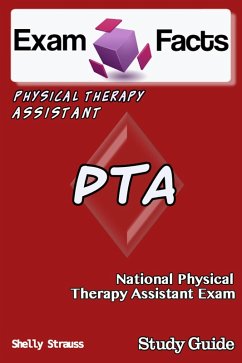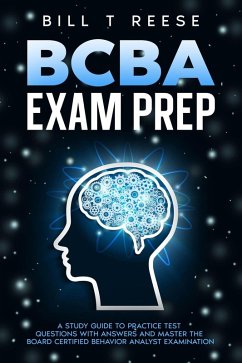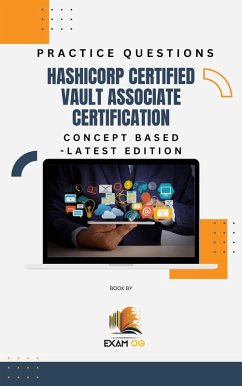
Certified Association Executive Exam (eBook, ePUB)
Strategies for Study & Success

PAYBACK Punkte
8 °P sammeln!
There are over 90,000 trade, membership, and professional associations in the United States, and more than 1 million charitable or philanthropic organizations, each managed by association executives and professionals that are dedicated to the mission, services, and social good provided by each institution. Perhaps you are one of these executives, or are considering a career in this important field. You may be surprised to learn that there are, in fact, only 3,000 Certified Association Executives, a mere 2% of all professionals managing associations and non-profit organizations. The CAE certifi...
There are over 90,000 trade, membership, and professional associations in the United States, and more than 1 million charitable or philanthropic organizations, each managed by association executives and professionals that are dedicated to the mission, services, and social good provided by each institution. Perhaps you are one of these executives, or are considering a career in this important field. You may be surprised to learn that there are, in fact, only 3,000 Certified Association Executives, a mere 2% of all professionals managing associations and non-profit organizations. The CAE certificate is one of the most selective and unique credentials in business today. I had been an executive with the United States Tennis Association for 16 years when I undertook my preparation for the CAE certification. My ambition was not just the prestige and distinction of the credential. Nor the fact this it would support my imminent promotion to head of diversity and inclusion at the USTA. Primarily, I sought the recognition of my skills, experience, and capabilities as a senior association executive, and a confirmation of my understanding of the best practices for managing an organization at a top level. My process of preparing for the CAE examination and for meeting the application requirements was somewhat self-taught. I did participate in one of the American Society for Association Executives' immersion study courses that are held twice each year in Washington, D.C., and found it to be helpful. But I recognized that a great deal of additional information could serve the community of executives that aspire to take this exam every year. And that not all qualified applicants could travel and stay in Washington, D.C. for three days in order to prepare in that fashion. This book is designed to do three things. First, it seeks to explain the CAE certification and its many benefits, in the hopes that you will join me in preparing for and attaining this credential. Second, it will provide a step-by-step process for preparing for the CAE examination, strategically and comprehensively. Third, it sets out to explain how to ready yourself for the test itself, and to offer specific recommendations and solid tactics for approaching it, so that you achieve your objective and complete it, successfully and with ease.
Dieser Download kann aus rechtlichen Gründen nur mit Rechnungsadresse in A, B, BG, CY, CZ, D, DK, EW, E, FIN, F, GR, HR, H, IRL, I, LT, L, LR, M, NL, PL, P, R, S, SLO, SK ausgeliefert werden.













